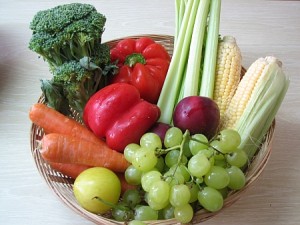
More evidence that low-calorie sweeteners are bad for your health
Studies show that artificial sweeteners can raise the risk of hypertension, metabolic syndrome, type 2 diabetes and heart disease, including stroke.

Hippocrates, the father of modern medicine, famously once said, “Let food be thy medicine, and thy medicine be thy food.”
Every recorded healing system on the planet, through every conceivable historical age, has recognised the vitally important role that food has to play in both maintaining good health, and, indeed, turning around disease patterns.
Many ancient cultures relied purely upon food remedies as their source of medicine, and many, such as Ayurveda and Traditional Chinese Medicine, studied the intricate relationships between food and physiological functions for millennia.
Often, they used terms that relate to supposed “energetic” patterns and activities in foods, and how these would interplay with similar energetic patterns and events in the body, to either cause balance or harm.

TV presenter and author Dale Pinnock is one of the tutors on NYR’s Nutrition for Wellbeing course. See ‘Learn More’ for details
In the last two centuries, the study surrounding the relationship between food, our body, and our health has been moving at quite a pace. Quite early on, we discovered things such as proteins and carbohydrates, realising their importance in energy production and tissue maintenance.
Piece by piece, we became aware of the individual vitamins and the physiological roles that they played. We became all too aware of the negative consequences of being deficient in these vital compounds, but there was seldom research that focused on the potential of these compounds to actively heal the body.
As nutritional science progressed, we focused on things such as the calorie, saturated and unsaturated fats, and body mass index (BMI). Nutritional science now has reached a bit of a sticking point.
The truth is that food’s impact upon our health is enormous. It goes far beyond simply counting calories and eating our greens. Nutrition alone serves more than a maintenance role. Nutrients, vitamins, and minerals are all cofactors. This means that they directly influence the activity of very specific and vital physiological events, metabolic pathways, and biochemical reactions within our bodies.
To this end, a few smart individuals began to realise that the manipulation of nutrient intake can have a huge impact upon both the severity and the progression of disease.
Take the example of dietary fats. Whatever you may believe, fats are a vital part of the human diet. However, we need the right ones. The fats that we consume can have a massive impact upon both the initiation of disease and the body’s own ability to manage it.
When we metabolise (chemically process, following digestion and absorption) certain fats, our body produces a series of biochemical messengers called prostaglandins.
These complex molecules, among other things, are actually involved in either the instigation and enhancement of pain and inflammation, or the prevention and reduction of pain and inflammation, depending on which type is produced. The type of prostaglandins that are produced can be greatly influenced by the type of dietary fats we consume.
If we eat predominantly fats that fall into the omega 3, polyunsaturated fat category, then we will direct our bodies to make a far higher percentage of the type of prostaglandins that help to reduce inflammation and minimise pain.
However, if we tend to eat more saturated animal fats, then we direct our bodies to manufacture more of the prostaglandins that instigate and enhance pain and inflammation.
All of the above refers to the study of nutrition, and what we know about the way in which nutrients actually interact with our bodies and the healing potential that nutrition can hold. The example of dietary fats is just one example of the influence that dietary changes can have on our internal environment in a way that can help to manage disease.
The staggering results that we observe when people drastically change their diet, focusing on minimally processed plant foods, far exceed the physical changes that we would expect to see from merely increasing our nutritional profile.
I personally feel that there is no separation between food and medicine at all. If we are consuming a diet of fresh, wholesome, unadulterated ingredients, we are, in fact, creating an environment that is conducive to healing. Applied in the right way under the right guidance, the results can be very powerful.
More articles by Dale on this site:

Please subscribe me to your newsletter mailing list. I have read the
privacy statement